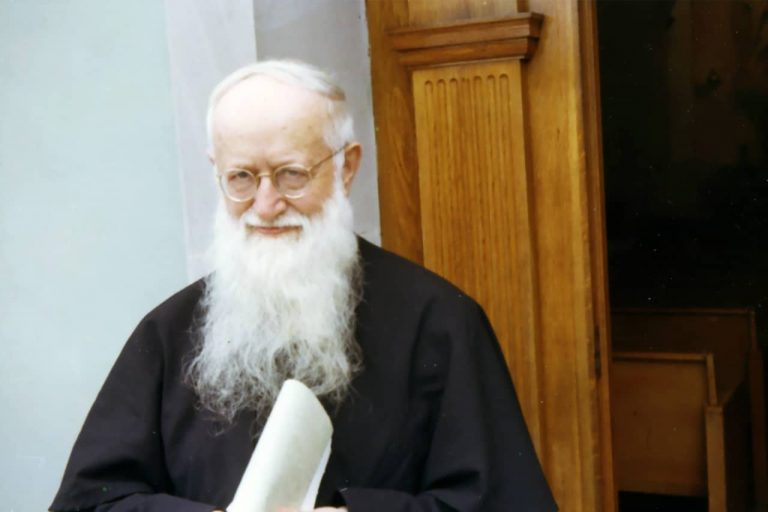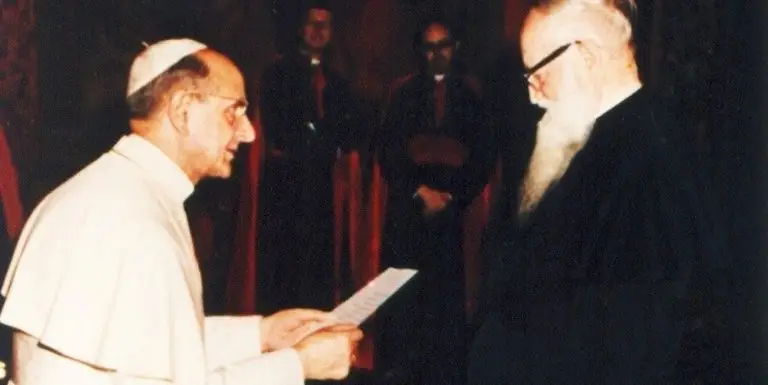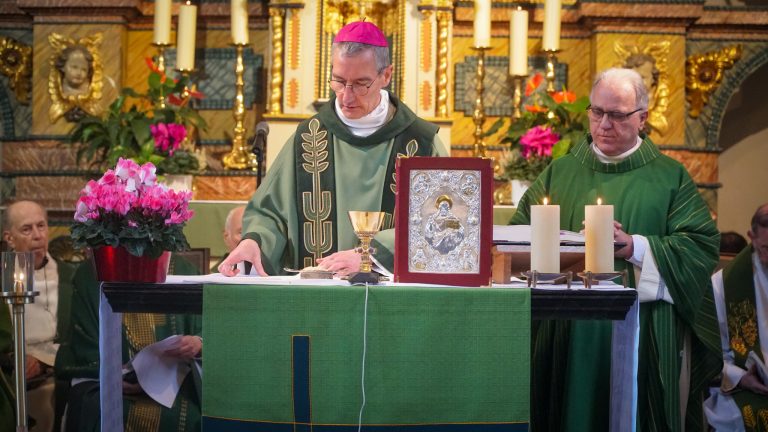With the presence of all the Schoenstatt communities in Argentina —Schoenstatt Fathers, Federation of Priests, Institute of Priests, Institute of Our Lady of Schoenstatt, Women’s Federation, Mothers’ Federation, Sisters of Mary, Institute of Families, Family Federation, Men’s Federation, members of the League, Boys’ and Girls’ Youth— the Reflection Meeting “Heaven is born on earth” was held from October 3 to 5, 2025 at the Father Shrine.
Motivated by the responsibility to deepen the charism and to restore the centrality of the Founder in his Work as Father and Founder, the commemoration of the Second Vatican Council and the fourth milestone in Schoenstatt’s history created the right context for developing a formation cycle that culminated in a Reflection Meeting in which we all participated. The meeting was coordinated by Gabriela Heinecke, territorial leader of the Mothers’ Federation.
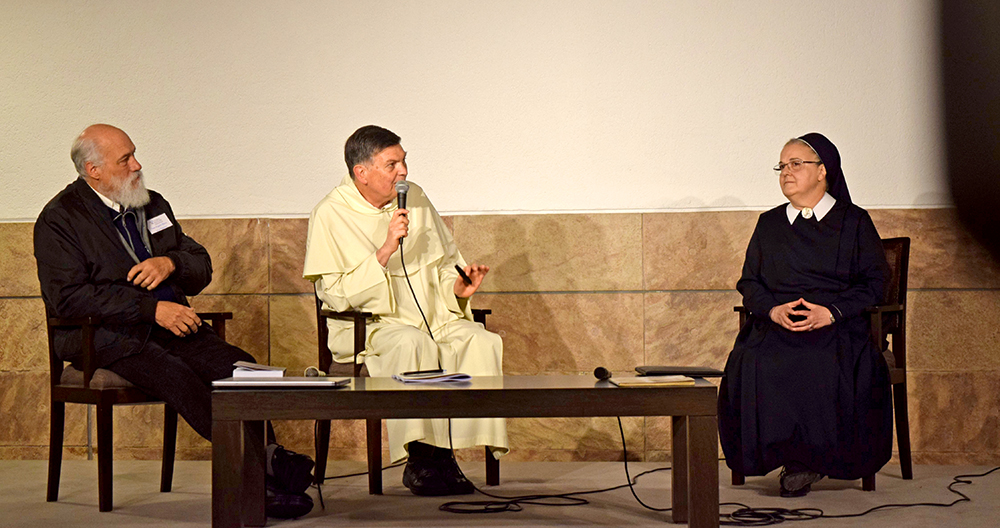
Presentation of the Apologia pro vita mea
The meeting began with the presentation of the Apologia pro vita mea, a text critically edited by the International Research Group. Father Alejandro Blanco, Sister M. Virginia Perera, and Sister M. Elena Lugo (now in heaven) prepared the text, which was submitted for critical academic review by Brother Jorge Alejandro Scampini, Doctor of Theology and consultant to the Dicastery for Promoting Christian Unity.
Song to the Prophet
The evening culminated with the Song to the Prophet, a text written by Payo and Oro López Muro in 1977. It was performed on this occasion by the Youth of the Belgrano Shrine, accompanied by Fathers Martín Clavijo and César Femia from the Federation of Priests.
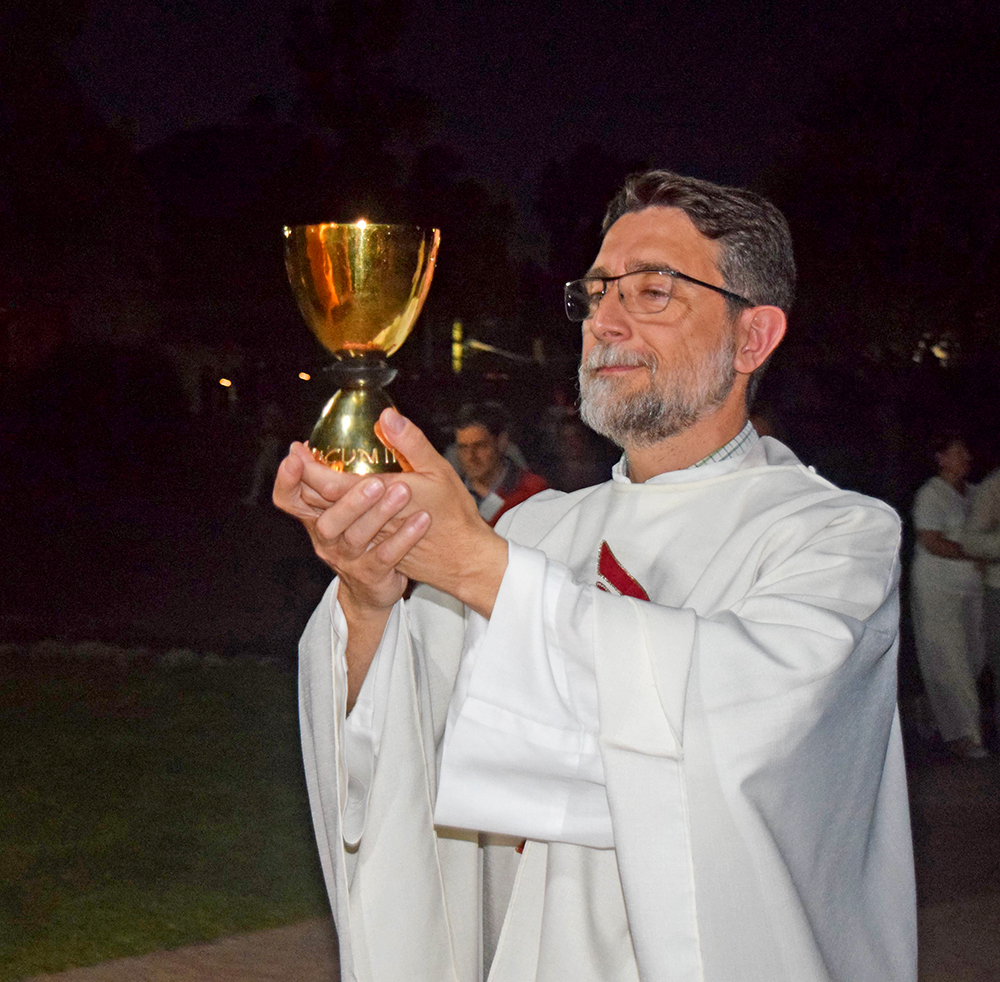
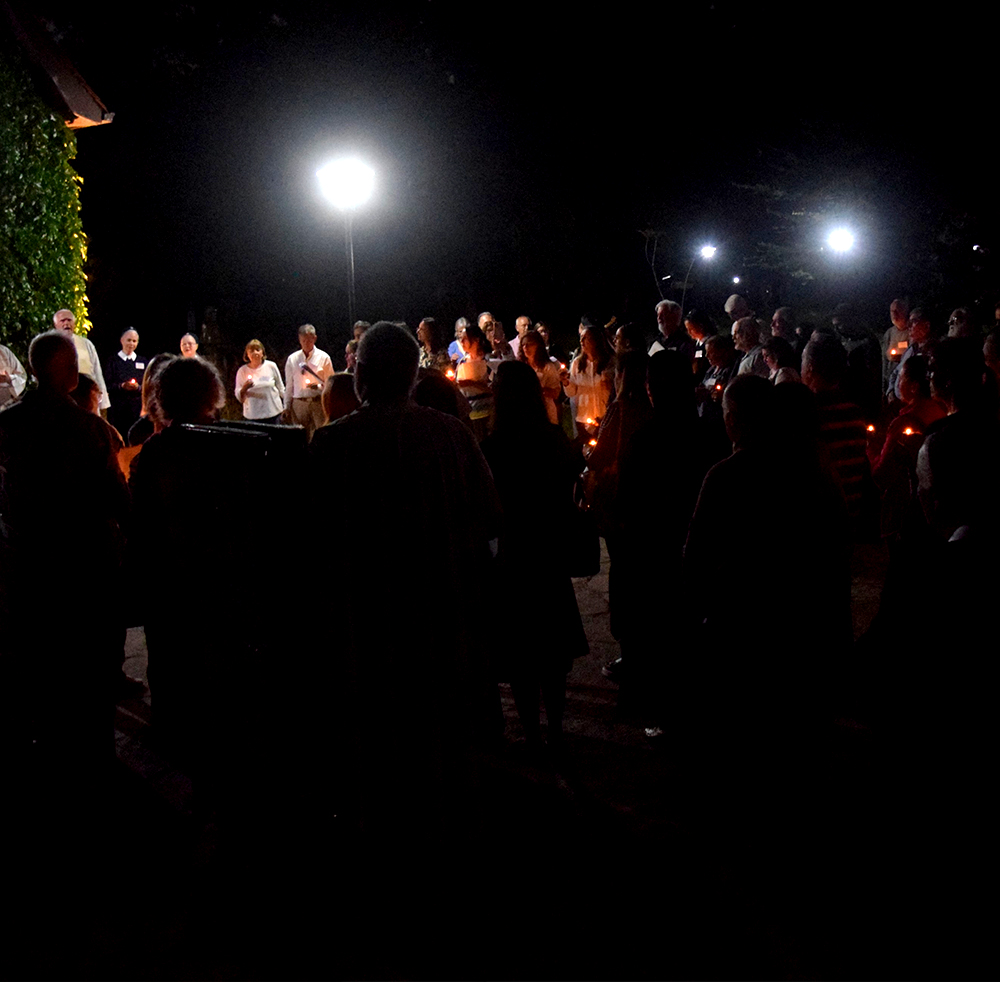
Schoenstatt and Vatican Council II
Saturday, December 4, began with a reflection on the legacy of the Second Vatican Council, whose conclusion we will commemorate on December 8. Brother Jorge Scampini spoke about the Keys to renewal since the Second Vatican Council. He linked this memorial with the legacy of Nicaea and paused to explain the novelty that the Council represented, which we are still called to realize. Next, Father Alejandro Blanco spoke about Schoenstatt’s mission and Vatican Council II, drawing an interesting parallel between Father Joseph Kentenich’s biography and his charismatic mission, in harmony with the Council’s message.
David Perera presented a documentary entitled History of the Fourth Milestone of Schoenstatt’s Founding, the result of research on historical data and resources from the Founder’s Archive in Schoenstatt. The material captured the sequence of events that marked this decisive moment in our history.
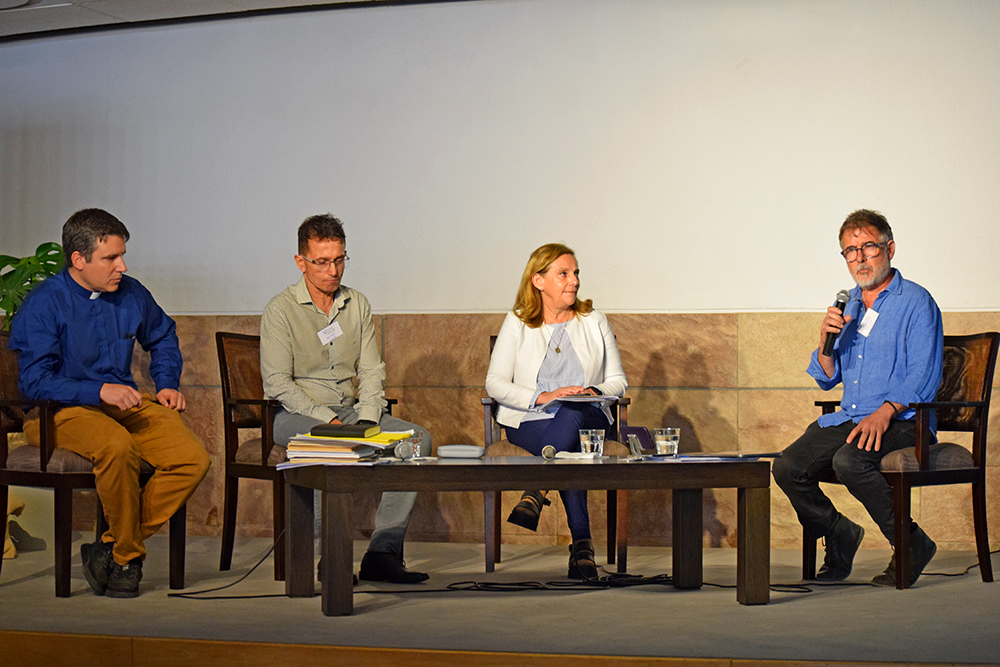
The panel, composed of Rita Gajate, rector of the Catholic University of La Plata, and her husband, Marcelo Moviglia, superiors of the Institute of Families in Argentina; José Vargas, clinical psychologist and Schoenstatt collaborator; and Father Santiago Ferrero, Schoenstatt Father and National Director of the Movement, reflected on the challenges posed by Schoenstatt’s charism for the 21st century, 60 years after the fourth milestone.
Reflecting as a Family
In the afternoon, the working groups met, led by monitors who had previously sent their groups texts from the Founder to work on. At this Reflection Meeting, great importance was placed on exchanging and sharing the resonance that reading the texts had left in the soul. The day culminated in a procession where we carried the chalice, given by the Founder to Paul VI, from the Father’s Oratory to the Church of God the Father, where we celebrated the Eucharist and concluded at the Shrine. This Mass was presided over by Father Darío Gatti of the Institute of Diocesan Priests.
One of the most moving moments was the community remembrance of Father Heriberto King. Many of us knew him because of his long stay in Argentina, where he continued his formative work from Germany. He was a thinker, a researcher, and profoundly knew the thoughts of our Father and Founder. We have been able to delve into his legacy thanks to the selection of texts he made and the books he wrote. Life, soul, and life processes were central themes in his teaching on Father Kentenich’s thoughts.
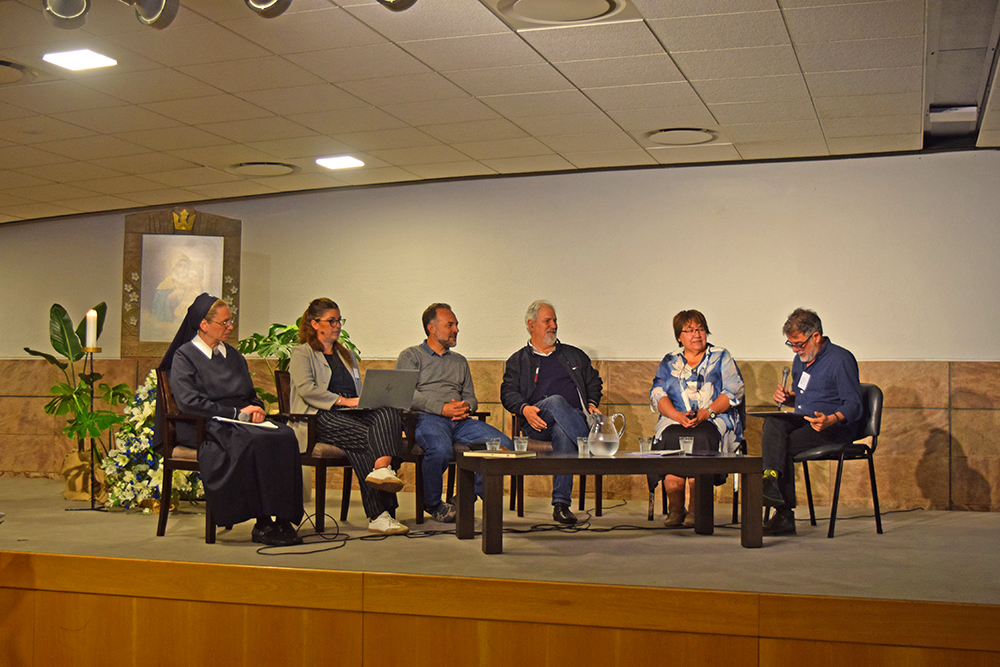
On Sunday, October 5, we gathered the fruits of both the Reflection Meeting and the formation cycle, along with the passage of the chalice through all the diocesan Schoenstatt communities, visiting shrines and wayside shrines.
Sister María Julia Agüero gave a brief overview of life at the House of the Father, ten years after its inauguration. Natalia and Julián Apud, from the Family Federation, presented the conclusions of the groups, which particularly emphasized the importance of formation. Mario Martínez, territorial head of the Family Federation, and Nancy Ojeda, regional head of the Women’s Federation, shared their experiences in coordinating the journey of the chalice through the different communities, highlighting the life that was awakened with the renewal of promises.
Renewal of promises with the chalice that Father gave to Paul VI
The meeting culminated with the celebration of Holy Mass, presided over by Monsignor Jorge González, auxiliary bishop of La Plata and member of the Schoenstatt Federation of Priests. Before him, we renewed as a community of leaders the promises that our Founder made: to Pius XII, that Secular Institutes would be a blessing for the Church; to Paul VI, to collaborate with the realization of the Second Vatican Council; and to Monsignor Höffner, Bishop of Münster, to recognize the fatherhood of the bishops so that the Church might be a family.
It was a joy to have the presence of several members of the General Boards of various communities: Silvina and Raúl Viñas, the leading couple of the International Family Federation; Matilde di Battista, counseler of the International Federation of Mothers; Maria Guadalupe Martino, from the General Board of the Institute of the Ladies of Schoenstatt; and the aforementioned Fr. Alejandro Blanco, Secretary General of the Federation of Priests.
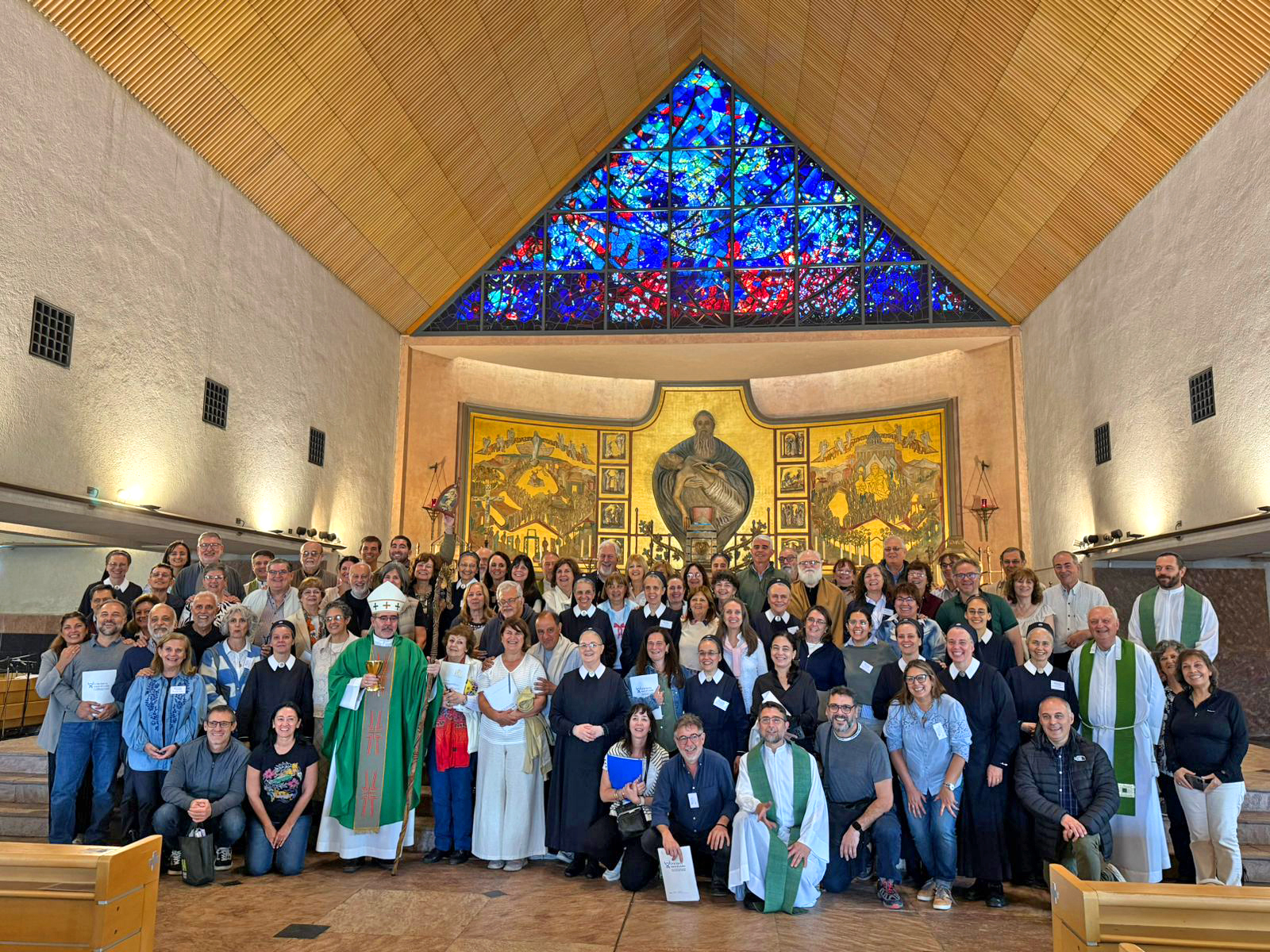
“I imagine that you are eagerly awaiting the first words I will say to you at this solemn meeting, after 14 years. It could be twofold. I could stay with you on earth, but I could also go up with you there, I don’t know, to heaven. (…) Our favorite occupation should be, in general: to rise above the earth, to listen to the heart of God, to try to discover his plans, to apply them to our own lives, to our own history, and, instructed by all the acquisitions of this research, to look clearly toward the future”
(Father Joseph Kentenich, Schoenstatt, December 24, 1965)
All the videos from the Introductory Cycle and the Encounter are available on YouTube, on the Schoenstatt Argentina channel. Click here to watch them.
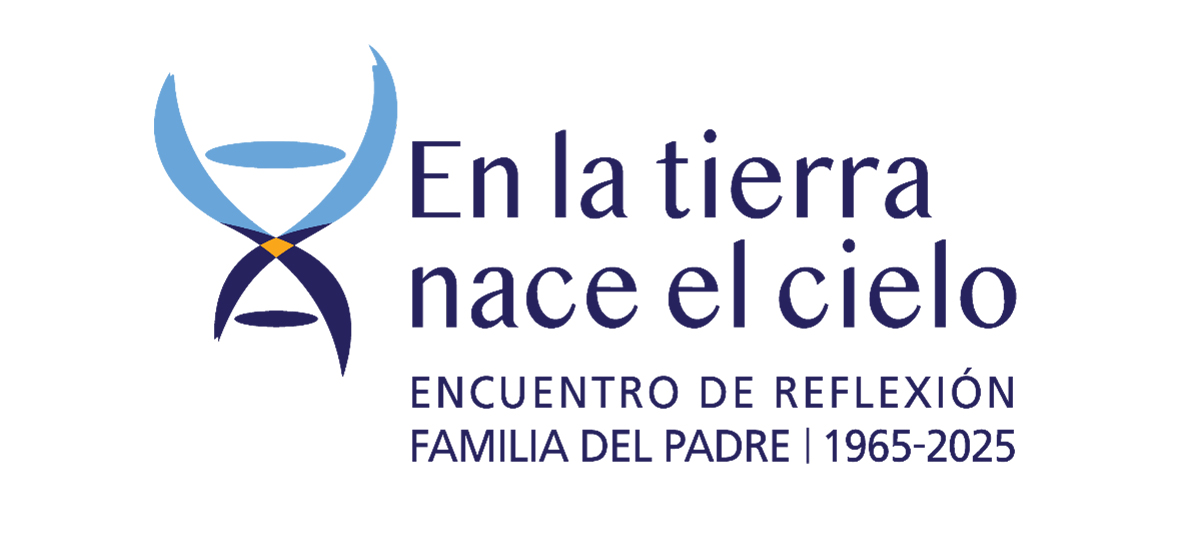
Translation: Sr. M. Lourdes Macías

